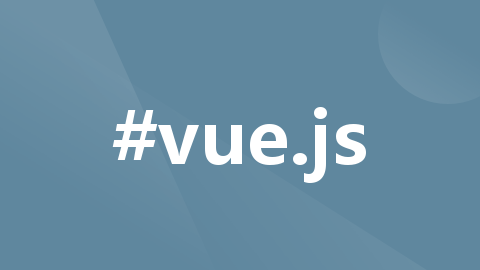
Vue之图片懒加载vue-lazyload
v-lazyload
·
具体细节以及更多拓展可前往npm官网查看:
Github了解源码:https://github.com/hilongjw/vue-lazyload
懒加载顾名思义就是懒得加载(…吧),当我们浏览网页,文档展示在电脑窗口的一部分会加载出图片,眼睛看不到的部分就不会加载。当窗口聚焦到文档,图片就会加载。这就是懒加载。此方法有效的降低了服务器的请求压力,大大提高了客户的访问速度。
那么如何实现:
对图片标签
<img/>的 src 属性下手,src就是请求图片地址的,所以懒加载把src属性直接替换为v-lazy属性。
首先创建完工程后
安装vue-lazyload组件包
npm i vue-lazyload@1.2.3 -S
这里不建议用最新版,会报错,图片加载不出来(我暂时遇到的bug)
下载好后就可以在main.js配置组件注册组件
import Vue from 'vue'
import App from './App.vue'
import router from './router'
// 1.图片懒加载插件
import VueLazyload from 'vue-lazyload'
Vue.config.productionTip = false
// 2.注册插件
Vue.use(VueLazyload, {
preLoad: 1.3,
// 懒加载默认加载图片
loading: 'https://img1.imgtp.com/2022/10/02/61x2dHvC.png',
// 加载失败后加载的图片
error: 'https://img1.imgtp.com/2022/10/02/61x2dHvC.png',
attempt: 1
// the default is ['scroll', 'wheel', 'mousewheel', 'resize', 'animationend', 'transitionend']
// listenEvents: [ 'scroll' ]
})
new Vue({
router,
render: h => h(App)
}).$mount('#app')
注册组件里面的具体参数配置可前往官网获取:

接着就可以随意使用图片懒加载了
例如,img添加v-lazy属性,值就是图片url
<template>
<div class="hello">
<h3>{{ msg }}</h3>
<div v-for="item in imgSrc" :key="item.id">
<p>内容区域</p>
<p>内容区域</p>
<p>内容区域</p>
<p>内容区域</p>
<img alt="" v-lazy=item.url />
</div>
</div>
</template>
<script>
export default {
name: "HelloWorld",
props: {
msg: String,
},
data() {
return {
imgSrc: [
{ id: 1, url: "https://img1.imgtp.com/2022/10/02/x2zOdyMi.png" },
{ id: 2, url: "https://img1.imgtp.com/2022/10/02/6OcEDlzP.png" },
{ id: 3, url: "https://img1.imgtp.com/2022/10/02/PCii39ly.png" },
],
};
},
};
</script>
这里我给了三张图片,用v-for遍历了出来。3G下查看效果:

更多推荐
 已为社区贡献4条内容
已为社区贡献4条内容







所有评论(0)